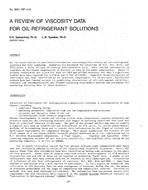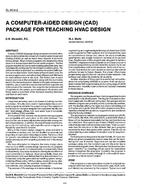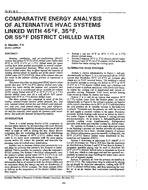The mechanism of boiling heat transfer in curved pipes is of very complex nature. The centrifugal forces acting on the fluid stream can substantially change the controlling processes from those found in straight pipes. Secondary circulation may develop within the pipe and change the velocity distribution at different locations around the bend. In addition, centrifugal forces will tend to concentrate the heavier phase, or liquid, on the outer radius of the bend, while the lighter phase, or vapor, concentrates on the inner radius. Therefore, radically different void fractions as well as velocity distributions may be found in a 180 deg bend from those in a straight pipe, and since these two factors are of prime importance in the heat transfer process, it is expected that substantial deviations may exist in the boiling heat transfer coefficients between straight pipes and 180 deg bends.
Presented next is a brief description of some of the investigations that have been performed, studying the behavior of boiling and non-boiling systems in pipe bends.
Citation: ASHRAE Transactions, Volume 78, Part 1, New Orleans, LA
Product Details
- Published:
- 1972
- Number of Pages:
- 10
- File Size:
- 1 file , 900 KB
- Product Code(s):
- D-NO-2232


